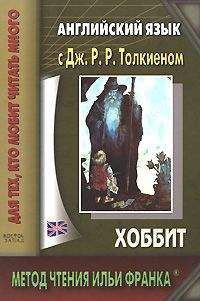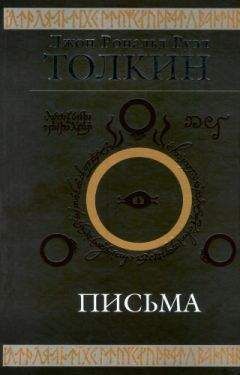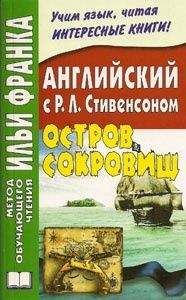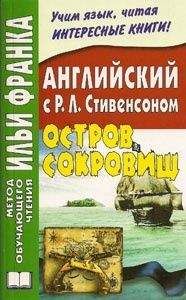crescent [ˈkres (ǝ) nt] excitement [ɪkˈsaɪtmǝnt] spidery [ˈspaɪd (ǝ) rɪ]
The moon was shining in a broad silver crescent. He held up the map and the white light shone through it.
“What is this?” he said. “There are moon-letters here, beside the plain runes which say ‘five feet high the door and three may walk abreast. ’ “
“What are moon-letters?” asked the hobbit full of excitement. He loved maps, as I have told you before; and he also liked runes and letters and cunning handwriting, though when he wrote himself it was a bit thin and spidery.
“Moon-letters are rune-letters, but you cannot see them, ” said Elrond, “not when you look straight at them. They can only be seen when the moon shines behind them, and what is more, with the more cunning sort it must be a moon of the same shape and season as the day when they were written. The dwarves invented them and wrote them with silver pens, as your friends could tell you. These must have been written on a midsummer’s eve in a crescent moon, a long while ago. ”
“What do they say (что же они говорят)?” asked Gandalf and Thorin together (спросили Гэндальф и Торин вместе), a bit vexed perhaps (возможно, слегка раздосадованные; to vex — досаждать, раздражать; возмущать, сердить) that even Elrond should have found this out first (что именно Элронд обнаружил эти /буквы/ первым), though really (хотя, на самом деле) there had not been a chance before (шанса раньше не представлялось), and there would not have been another (и не было бы и другого) until goodness knows when (до неизвестно каких пор; goodness — доброта, ценные качества; зд. заменяет слово God — Бог /чтобы не употреблять его всуе/).
“Stand by the grey stone (стой у серого камня) when the thrush knocks (когда застучит дрозд), ” read Elrond (прочитал Элронд), “and the setting sun (и заходящее солнце) with the last light of Durin’s Day (последним лучом света Дьюриного Дня) will shine upon the key-hole (озарит замочную скважину). ”
“Durin (Дьюрин), Durin!” said Thorin (сказал Торин). “He was the father of the fathers (он был прародителем родоначальников) of the eldest race of Dwarves (древнейшего рода Гномов), the Longbeards (Длиннобородых), and my first ancestor (и мой первый предок): I am his heir (я его наследник). ”
“Then what is Durin’s Day (тогда, что же это за Дьюрин день)?” asked Elrond (спросил Элронд).
“The first day of the dwarves’ New Year (первый день Нового Года гномов), ” said Thorin, “is as all should know (это, как все должны знать) the first day of the last moon of Autumn (первый день последней луны Осени) on the threshold of Winter (на пороге Зимы). We still call it Durin’s Day (мы все еще называем его Дьюриным Днем) when the last moon of Autumn (когда последняя луна Осени) and the sun (и солнце) are in the sky together (находятся на небе вместе). But this will not help us much (но это нам не очень поможет), I fear (я боюсь), for it passes our skill in these days (потому как за пределом наших умений в эти дни; to pass — проходить; превосходить) to guess when such a time (предугадать, когда такое время) will come again (наступит снова). ”
vex [veks] chance [tʃɑ: ns] thrush [Ɵrʌʃ]
“What do they say?” asked Gandalf and Thorin together, a bit vexed perhaps that even Elrond should have found this out first, though really there had not been a chance before, and there would not have been another until goodness knows when.
“Stand by the grey stone when the thrush knocks, ” read Elrond, “and the setting sun with the last light of Durin’s Day will shine upon the key-hole. ”
“Durin, Durin!” said Thorin. “He was the father of the fathers of the eldest race of Dwarves, the Longbeards, and my first ancestor: I am his heir. ”
“Then what is Durin’s Day?” asked Elrond.
“The first day of the dwarves’ New Year, ” said Thorin, “is as all should know the first, day of the last moon of Autumn on the threshold of Winter.
We still call it Durin’s Day when the last moon of Autumn and the sun are in the sky together. But this will not help us much, I fear, for it passes our skill in these days to guess when such a time will come again. ”
“That remains to be seen (это мы еще посмотрим; to remain — оставаться), ” said Gandalf. “Is there any more writing (есть там еще какие-либо письмена)?”
“None to be seen by this moon (никаких больше не видно при этой луне), ” said Elrond, and he gave the map back to Thorin (и он отдал карту обратно Торину); and then they went down to the water (и тогда они пошли к воде) to see the elves (посмотреть, как эльфы) dance and sing upon the midsummer’s eve (танцуют и поют в день накануне летнего солнцестояния).
The next morning was a midsummer’s morning (следующее утро было утром дня летнего солнцестояния) as fair and fresh as could be dreamed (такое ясное и свежее, о каком только можно было мечтать): blue sky (синее небо) and never a cloud (и ни облачка), and the sun dancing on the water (и солнечные /блики/ танцевали на воде). Now they rode away (в тот момент они отправились в путь: «ускакали прочь»; to ride (rode, ridden) — ездить верхом, скакать) amid songs of farewell (среди прощальных песен) and good speed (и пожеланий успеха; speed — скорость, быстрота; /арх. / удача, выгода), with their hearts ready for more adventure (с сердцами, готовыми к дальнейшим приключениям), and with a knowledge of the road (и со знанием дороги) they must follow (которой они должны следовать) over the Misty Mountains (за Мглистыми Горами) to the land beyond (к стране, /лежащей/ за ними).
remain [rɪˈmeɪn] farewell [feǝˈwel] beyond [bɪˈjɔnd]
“That remains to be seen, ” said Gandalf. “Is there any more writing?”
“None to be seen by this moon, ” said Elrond, and he gave the map back to Thorin; and then they went down to the water to see the elves dance and sing upon the midsummer’s eve.
The next morning was a midsummer’s morning as fair and fresh as could be dreamed: blue sky and never a cloud, and the sun dancing on the water. Now they rode away amid songs of farewell and good speed, with their hearts ready for more adventure, and with a knowledge of the road they must follow over the Misty Mountains to the land beyond.
Chapter 4. Over Hill and Under Hill
(Глава 4. Через холм и под холмом)
There were many paths (было много тропинок) that led up into those mountains (которые вели вверх по этим горам), and many passes over them (и много проходов /что вели/ сквозь них). But most of the paths were cheats (но большинство из тропок были обманками; cheat—мошенничество, жульничество) and deceptions (и иллюзиями) and led nowhere (и вели в никуда) or to bad ends (или в тупик: «к плохим концам»); and most of the passes (и большая часть из проходов) were infested by evil things (кишмя кишели злобными тварями; to infest — кишеть; наводнять, заполнять) and dreadful dangers (и ужасными опасностями). The dwarves and the hobbit (гномы и хоббит), helped by the wise advice of Elrond (с помощью мудрого совета Элронда) and the knowledge and memory of Gandalf (и /благодаря/ знаниям и памяти Гэндальфа), took the right road to the right pass (выбрали правильную дорогу к правильному проходу).
Long days (в течение долгих дней) after they had climbed out of the valley (после того, как они вскарабкались из долины) and left the Last Homely House miles behind (и оставили Последнее Домашнее Жилище в милях = далеко позади себя), they were still going up and up and up (они все еще забирались вверх, вверх и вверх). It was a hard path (это была тяжелая тропа) and a dangerous path (и опасная тропа), a crooked way (кривая дорожка) and a lonely (и одинокая = безлюдная) and a long (и длинная). Now they could look back (теперь они могли оглянуться назад) over the lands they had left (на те земли, что они оставили), laid out behind them (что лежали за ними) far below (далеко внизу). Far, far away in the West (далеко, далеко на Западе), where things were blue and faint (где все выглядело: «вещи были» голубоватым и неясным), Bilbo knew there lay his own country (Бильбо знал, что там лежала его собственная страна) of safe and comfortable things (/полная/ безопасных и удобных вещей), and his little hobbit-hole (и /где была/ его собственная хоббитовская нора). He shivered (он поежился). It was getting bitter cold up here (становилось ужасно холодно здесь, наверху; bitter—горький; мучительный, резкий), and the wind came shrill among the rocks (и пронзительный ветер дул между скалами). Boulders, too, at times (валуны, к тому же, время от времени) came galloping down the mountain-sides (быстро неслись вниз по склонам горы), let loose by midday sun upon the snow (вырвавшиеся, благодаря полуденному солнцу, из снега; to let loose — выпускать, освобождать; loose—свободный; непривязанный, неприкрепленный), and passed among them (и проносились между них) (which was lucky (что было удачно)), or over their heads (или над их головами) (which was alarming (что было тревожным; alarm — боевая тревога, сигнал тревоги; to alarm — поднять тревогу, дать сигнал тревоги)).





